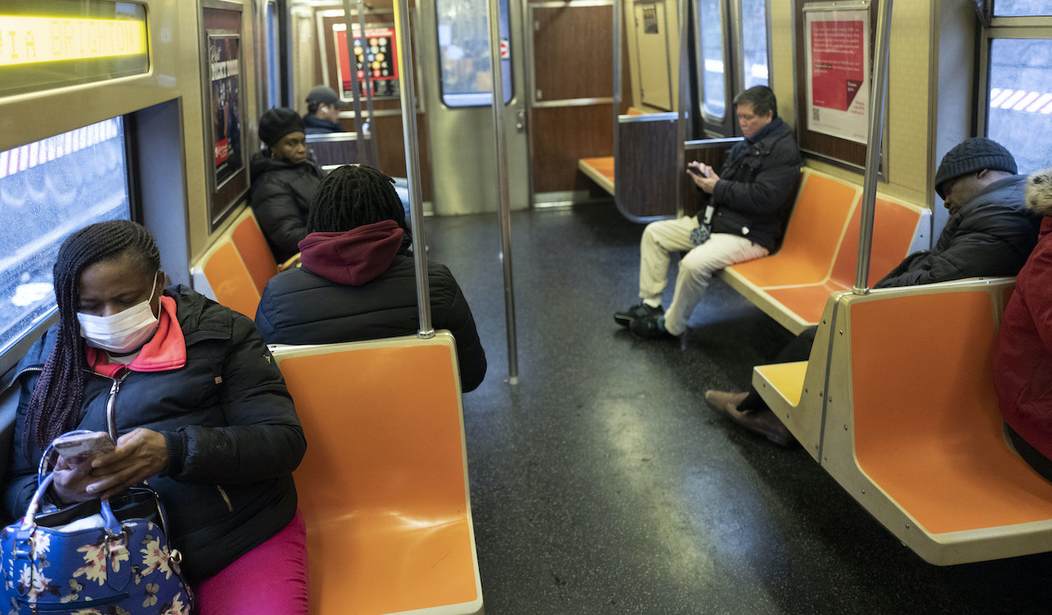The numbers are preliminary, but it seems that African Americans are dying from COVID-19 at alarming rates. In Louisiana, for instance, blacks represent 70 percent of the dead but only 33 percent of the population. In Michigan, blacks comprise 33 percent of the infected, but 40 percent of the fatalities. This has occasioned an outpouring of analysis suggesting that racism is to blame. Racism and discrimination have unarguably left grave traces in the lives of African Americans, but the rush to identify racism as the cause of this particular disparity may be too pat.
CNN, like many others, cited lower levels of health insurance among blacks as one reason for the higher death rate. "Compared to white people, blacks have lower levels of health insurance coverage and are less likely to have insurance coverage through an employer." According to The Kaiser Family Foundation, this is true, but the differences are quite small. Among whites in 2018, 7.5 percent lacked health insurance. Among blacks, the figure was 11.5 percent. The Hispanic rate was significantly higher at 19 percent.
A number of reports have also pointed to higher rates of asthma among African Americans as possibly predisposing them to complications from COVID-19, which seems plausible. But again, the numbers are surprisingly modest. The Office of Minority Health at the Health and Human Services department found in 2015 that the percentage of African American adults with diagnosed asthma was 9.1 percent. The percentage among whites was 7.9 percent. On the other hand, the death rate was three times as high for blacks as whites for reasons unknown. The newest evidence from COVID-19 fatalities, however, has downgraded asthma as a risk factor. Cardiovascular issues appear to be much more significant.
Many reports on racial disparities in deaths from the new virus have unfortunately traded in stereotypes. African Americans are portrayed as largely poor and urban. That's not the case. In 2018, the black poverty rate was 20.8 percent, which was, unfortunately, more than double the white rate of 10.1 percent, but still leaves nearly 80 percent of African Americans in the middle and upper classes. Like whites, blacks are also more likely these days to live in suburbs (39 percent) than in cities (36 percent). Another 15 percent live in small metropolitan areas and 10 percent in rural regions.
Recommended
There is little dispute that African Americans have higher rates of obesity, diabetes and heart disease than whites, Hispanics or Asians, and those underlying health conditions leave them more vulnerable to various other diseases. But that doesn't answer the question about COVID, or the flu for that matter. The 2009 H1N1 epidemic, for example, affected all ethnic groups similarly. In 2010, the CDC reported, "There is no epidemiological or clinical evidence that suggests that African Americans are more susceptible to either 2009 H1N1 or seasonal influenza."
Some have suggested that because African-Americans are more likely to hold service jobs and interact with the public, they are more at risk. This is somewhat true. Only 20 percent of African Americans in a recent survey said they could work from home, compared with 30 percent of whites. But that's not a huge gap and doesn't explain the large discrepancies in deaths from COVID-19.
Here's another stereotype to retire: the one about blacks as mail carriers and train conductors. The Labor Force Statistics table from the BLS, (which is more interesting than it sounds), shows that blacks are distributed all over the employment map. African Americans represent about 12 percent of the U.S. population, and comprise 10.7 percent of those in "textiles, apparel, leather manufacturing." They are 12 percent of the "household appliance manufacturing" workforce, and 8.4 percent of employees in furniture stores. They are quite overrepresented among human resource administrators (21.8 percent), electronic equipment repair and maintenance (17 percent) and vocational rehabilitation services (26.6 percent). Yes, they represent 29.9 percent of those employed by taxi and limousine companies, as well as 30.5 percent of home health care workers, but the distribution of work is quite broad.
Something is causing large numbers of African Americans to succumb to this new disease. I am not a medical professional and wouldn't hazard a guess as to what's going on physiologically. There are some new reports that the disease causes strange blood clots. If we're lucky, this new insight will point to better treatments.
The truth is that we're dealing with multiple unknowns, and though we can never discount the long-lasting effects of racism, it's dubious to attribute this pathogen's lethality to cultural factors. Americans of all ethnicities are starting to be more alike than different, and looking for social explanations for our current health crisis may impede rather than enhance understanding.
Mona Charen is a senior fellow at the Ethics and Public Policy Center. Her new book is "Sex Matters: How Modern Feminism Lost Touch with Science, Love, and Common Sense."

























Join the conversation as a VIP Member